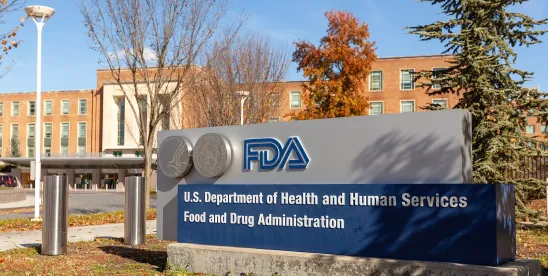Avid readers know we have speculated that the legalization of psychedelics as a prescription medicine was “closer than ever.” Unfortunately, for proponents of the legalization of psychedelics like MDMA, progress is rarely a straight line.
As we previously reported, Lykos Therapeutics Inc. sponsored a new drug application for MDMA therapy. That application proposed a new protocol for the treatment of PTSD that combined the dosing of MDMA with multiple sessions of psychotherapy. In support of its efforts, Lykos cites the backdrop of the “PTSD crisis” and the limited options for effective treatment.
There were reasons to be positive about Lykos’ application. As reported by Yahoo Finance:
Per the results of its phase 3 clinical trials published in the highly influential Nature Medicine Journal, Lykos’ approach helped patients to report fewer symptoms and thereby score lower on a few structured questionnaires that are designed to assess the severity of different aspects of PTSD. The cohort of the study that received only a placebo and psychological support did not experience anywhere near as many positive changes. Safety signals were as expected and as described in earlier-stage trials, with most side effects being mild and transient in nature.
In other words, on the basis of the data Lykos published, its therapy looks like tis more than merely promising. It’s nearly as close to being proven as a candidate can get before it gets approved for sale by the FDA.
Earlier this month, however, on June 4, the Food and Drug Administration Psychopharmacologic Drugs Advisory Committee voted against the approval of MDMA-assisted therapy for the treatment of PTSD. The Advisory Committee concluded by a 9-2 vote that the data available did not show the proposed drug treatment was effective for patients with PTSD. The nine committee members voting against the drug application criticized the study for having expectation and selection biases, lack of diversity in the sample set, and potential result manipulation. In a 10-1 vote, the Advisory Committee also said there were too many gaps in the data to be able to determine that the benefit of MDMA outweighed the potential risk of using it in treatment, voting no on that question.
Dr. Walter Dunn, assistant clinical director at UCLA’s Department of Psychiatry, cast the lone “yes” vote on the question of whether the benefits of MDMA outweighed the potential risk of using it in treatment. He stated:
As has been stated before, we are in dire need of new treatments for PTSD… This has the potential to make a difference. Now, that’s not without its risks. But as I like to tell all my trainees, there’s no room for free lunch in medicine. And what has the potential for benefit has the potential for harm.”
As Lykos sees it, there are a few key issues raised by the Advisory Committee:
- Evidence of effectiveness
- Functional unblinding
- Prior MDMA use of the study population
- Psychological intervention in the research protocol and its regulation
- Cardiovascular and hepatotoxicity risks
- Sponsor and investigation bias
While each of these issues is something that Lykos (and possibly others seeking approval) will have to overcome to obtain FDA approval, we anticipate that functional unblinding is a challenge that the larger psychedelic industry will have to grapple with if it wants its drugs legalized. As Lykos concedes, functional unblinding is a “known research challenge for psychiatric drugs with psychoactive effects.” Researchers and applicants are going to need to find solutions to this challenge to be successful.
The stock market certainly saw this as a setback. After the ruling, shares of psychedelics companies such as Compass Pathways, Atai Life Sciences, and Mind Medicine saw a steep drop. Many of those stocks remain down.
To be clear, this is not the final decision. The final decision rests with the FDA. We’ll be on the look out to see what happens later this summer, with an expectation that the FDA will issue a regulatory decision on the application in mid-August.





 />i
/>i

